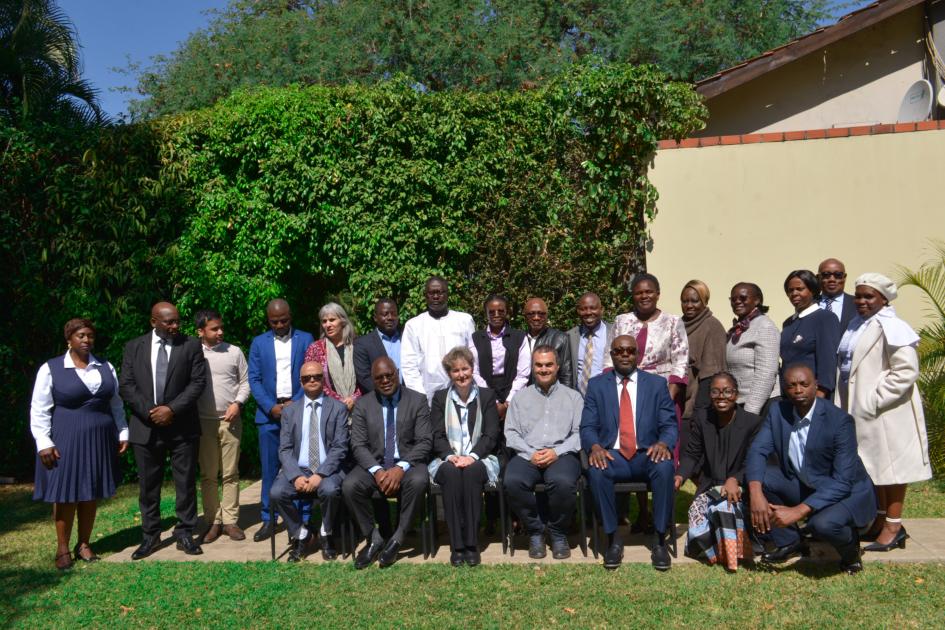The African Union Moves to Harmonize Learning Assessments through a New Continental Framework
The African Union Moves to Harmonize Learning Assessments through a New Continental Framework

According to UNESCO, while four in five children in Africa complete primary school, fewer than two in ten achieve minimum proficiency in reading and mathematics. This learning crisis poses a major threat to the attainment of both continental and global education goals, demanding urgent, systemic reforms.
The validation workshop, which commenced on 29 July 2025, marks a critical milestone in operationalizing the Continental Assessment Framework for Africa (CAF-Africa). The Framework provides a shared, technically sound approach to assessing foundational learning, enabling AU Member States to adopt harmonized benchmarks for reading and mathematics proficiency in line with Sustainable Development Goal (SDG) Indicator 4.1.1 and the Continental Education Strategy for Africa (CESA 2026–2035).
“We are committed to closing Africa’s learning data gaps and ensuring every child’s learning is visible, measurable, and acted upon,” said Mr. Adoumtar Noubatour, Coordinator of AU-IPED. “The Continental Assessment Framework is not just a technical tool; it’s a statement of our collective ambition.”
CAF-Africa responds directly to the 2023 Ministerial Call to Action led by Zambia and supported by Kenya, Rwanda, Senegal, and The Gambia, which highlighted the need for robust, comparable data to track progress at the fourth session of the AU Specialized Technical Committee on Education, Science, and Technology (STC-EST4). The call underscored the urgent need for robust and comparable data to inform education reforms and track learning progress across the continent.
“Our goal is to provide national and regional actors with a harmonized, contextually relevant framework to assess the quality of education systems,” said Dr. Michael Chilala, Executive Secretary of AEAA. “This will enable governments to set realistic learning targets, allocate resources effectively, and ensure no learner is left behind.”
The validation workshop brings together approximately 30 participants, including representatives from AU Member States, regional organizations such as PASEC, civil society actors, and academic institutions. Key areas of focus include curriculum and assessment alignment, national assessment frameworks, and strengthening institutional capacity for learning assessment.
The CAF-Africa validation process is expected to deliver four key outcomes:
1. A finalized and technically validated Continental Assessment Framework.
2. Increased political and technical commitment to CAF implementation.
3. Stronger integration between CAF and AU-led education accountability and skills development initiatives.
4. A repository of good practices and technical recommendations to guide Member States in rollout.
Looking ahead, the validation workshop will pave the way for two major milestones: the official launch of the Framework at the AEAA Annual Conference in August 2025, and a ministerial-level presentation at the ADEA Triennale in Ghana in October 2025.
As the African Union enters the AU Decade of Education (2025–2034), CAF-Africa stands as a cornerstone for strengthening evidence-based education systems across the continent. Anchored in reliable learning data, the Framework supports progress toward realizing the vision of Agenda 2063: The Africa We Want.
For further information, please contact:
- Lukman Olawale Jaji, Policy Officer, Education Management Information Systems (EMIS) | Education, Science, Technology and Innovation Directorate | Email: jajil@africanunion.org
- Gamal Eldin Ahmed A. Karrar, Senior Communication Officer - Information and Communication Directorate | African Union Commission Tel: +251 904 138 354| E-mail: gamalk@africanunion.org | Addis Ababa, Ethiopia








